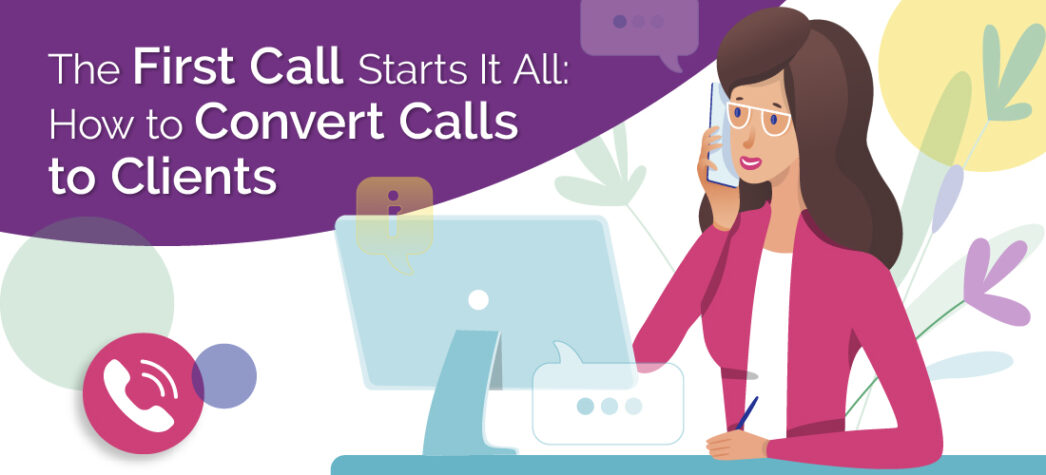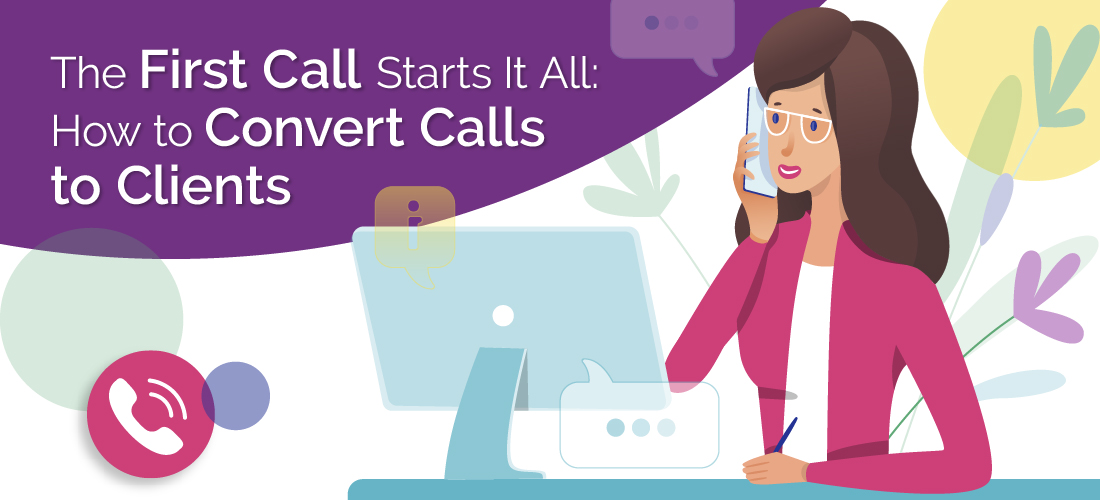Think for a moment about your most memorable customer service experience. What made it unforgettable? Perhaps the representative went above and beyond your expectations. Or maybe the rep failed miserably in providing you with the information you sought. Good or bad, deciding whether or not to do business with a company begins with the all-important first call.
To illustrate, take a look at this clip from our wildly popular webinar covering real-life cringe-worthy home care inquiry call scenarios. Names have been changed to protect the companies’ identities, but it’s easy to see how ineffective these approaches are.
To stay competitive and grow your home care business, you’ve hopefully prioritized having an engaging website, ongoing SEO and PPC services, and other effective home care marketing and sales tactics. All of this is imperative to connect with qualified leads.
But what happens when someone finds your company and reaches out to you? Do you have a handle on how your inquiry calls are being handled?
Let’s take a look at what it takes to create a memorable first-call experience for those who contact your company.
Train. Evaluate. Repeat.
The best inquiry call process begins with an initial training of all team members who may answer the phone, but it doesn’t end there. A call-listening service allows you the opportunity to record and listen to your inquiry calls to see how they are being managed. Mystery shopping is another great way to monitor inquiry management and compare your company’s process to your competitors’. The information you gather through these exercises enables you to hone in on areas for improvement and provide additional, relevant, ongoing training sessions.
What to Listen For When Evaluating Inquiry Calls
When evaluating your inquiry calls, listen to see if your team members:
- Present services as a solution to the caller’s individual concerns
- Demonstrate expertise by making appropriate suggestions
- Incorporate examples of resolving similar problems for others
- Connect the caller with relevant and helpful community resources
- Offer a confident “Yes, we can” statement about services relevant to the caller’s needs
- Summarize and address concerns the caller raised
- Emphasize how home care services can solve the problems you heard
- Ask open-ended questions to understand the individual’s care needs
- Instill confidence by asking relevant follow-up questions
- Focus on the goal of the call—to schedule an in-home consultation and close
- Recruit specifically for the individual, if needed, and follow up
- Add value by emphasizing relevant agency differentiators
- Educate the caller on funding options
- Respond to objections
- Express empathy and confidence
- Designate a trained representative to answer calls after-hours
- Project professionalism and engagement
- Triage the urgency of the caller’s needs and direct as needed
- Schedule the next action step before ending the call
The Don’ts of Home Care Inquiry Calls
At the same time, there are a number of inquiry management red flags that could be lowering your conversion rate. Additional training is needed in these specific areas if your staff:
- Create new concerns for the caller instead of solving the problems they present
- Express doubt about the quality and/or reliability of the agency’s available staff
- Emphasize what the caregiver cannot do instead of what they can help with
- List services menu-style
- Name services that are irrelevant to the caller’s specific needs
- Forecast what level of care will be needed as an individual’s health declines
- Begin considering staff before the assessment has even happened
- Ask questions needed only for staffing purposes
- Create confusion with too much information
- Discuss rates for levels of care the caller does not need
- Are apologetic or lack confidence
- Send the caller to voicemail
- Explain that they are unable to help
- Share their personal situation or whereabouts (i.e., if a call comes in after hours and they apologize for the background noise because they’re at the grocery store)
Maximize ROI and Conversions With Specialized Home Care Sales Training
The quality of training your team receives is key to their effectiveness in establishing your company as a trusted partner who can meet their care needs. Our care marketing experts have decades of experience in helping care companies improve their conversion rates and grow their business through inquiry management training, mystery shopping, call monitoring, and much more.
Contact us at 800.370.6580 to learn more about how we can help.


